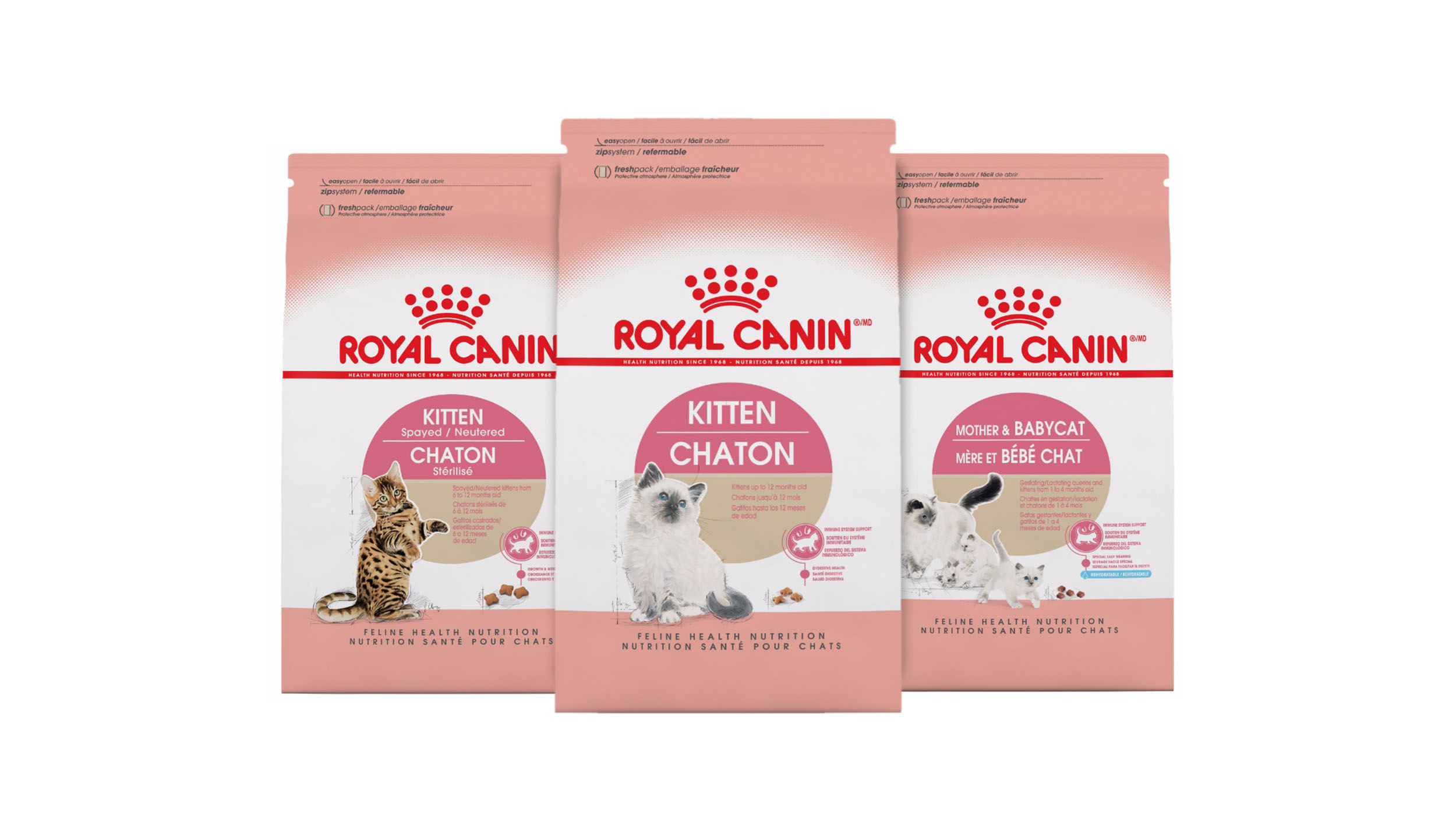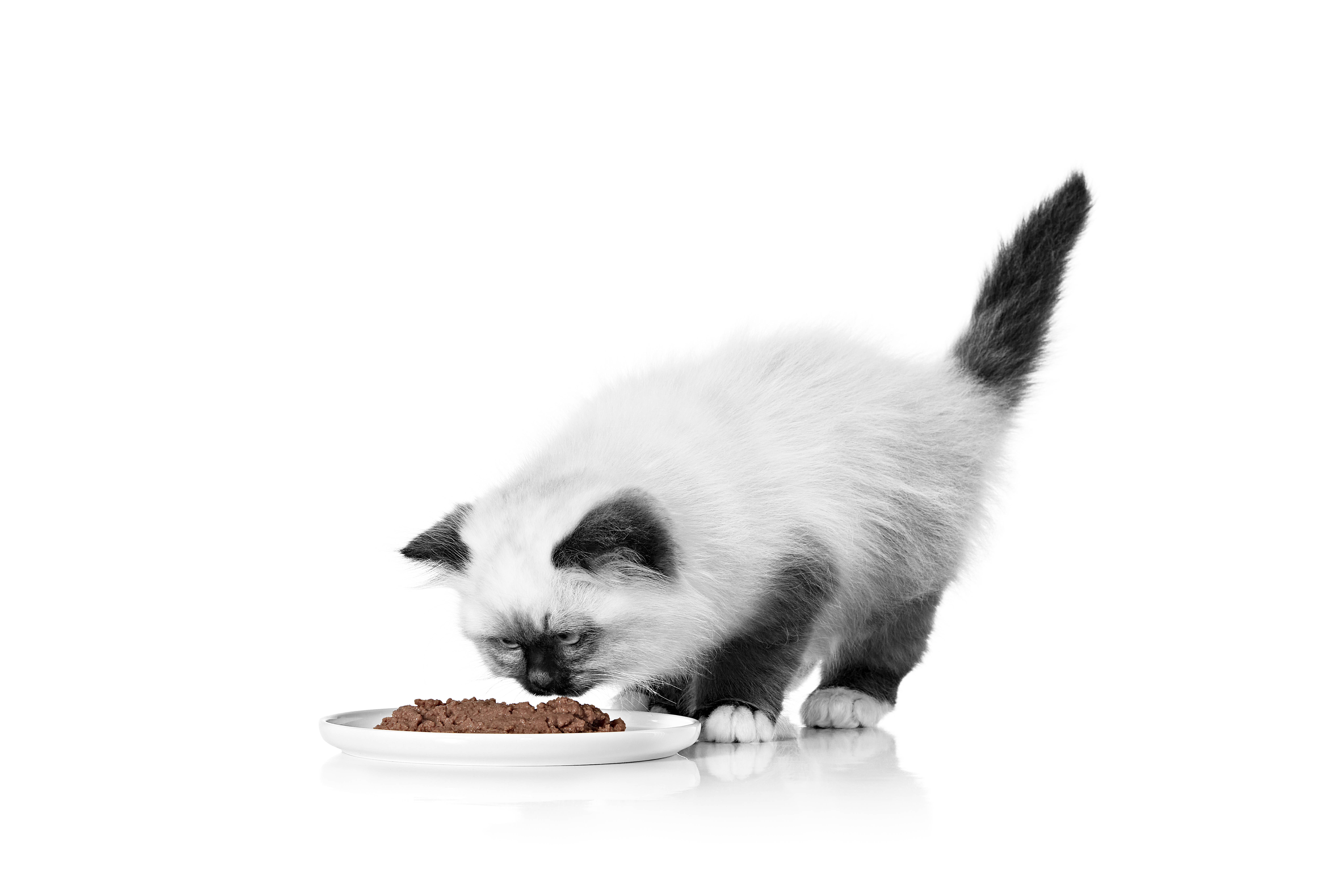
Taking care of your kitten’s health
Seven tips to keep your kitten healthy
1. Learn to read your kitten’s body language so you know when they might be feeling ill. If you sense something isn’t right, speak to your veterinarian.
2. Make sure that your kitten gets the right nutrition from a specialized, well-balanced kitten diet.
3. Kittens need lots of sleep, so make sure they have a comfortable, quiet place to rest.
4. Make sure that you never wake up a kitten while it's sleeping
5. Kittens also need to exercise and enjoy company, so make time to play with them.
6. Help to build your kitten’s confidence by ensuring they’re regularly handled by a variety of people.
7. Always follow your veterinarian's recommended vaccination schedule.

Find the right product
Answer questions about your pet
Get a tailored recommendation
Unlock your pet’s health follow up

Build your kitten’s immunity with tailored nutrition
It's vital for your kitten's long-term health and wellbeing that they develop a strong immune system during the first months of life. Our formulas are scientifically developed to support their long-term healthy growth.
Your kitten's first visit to the veterinarian
It’s important to take your kitten to the veterinarian soon after they have come home with you. Your veterinarian will need to carry out a number of important checks and treatments, such as vaccinations and worming. This is a great opportunity to learn about your kitten’s health and how to care for them.
Vaccinating your kitten
Vaccinations are vital to reinforce your kitten’s natural defences and protect them against a range of contagious, sometimes fatal, diseases.
The recommended kitten vaccinations protect against diseases including:
- Feline leukemia – weakens the immune system and dramatically increases vulnerability to infections.
- Feline calicivirus – highly contagious and a major cause of respiratory infections. This condition is transmitted by direct contact with eyes or nose of infected cats or contact of contaminated objects, such as bowls or toys.
- Feline panleukopenia virus – an often-fatal viral disease that causes vomiting. A cat may also experience diarrhea, but this is not always present.
- Feline herpes virus – a key cause of cat flu and eye disease.
- Rabies – transmitted by saliva of an infected animal and can be introduced beneath the skin from bites wounds.
There are also other vaccinations that your kitten may need. Your veterinarian can advise what’s best for them.
It’s really important that your kitten has the right vaccinations at the right age to ensure their health and wellbeing as they grow. Your veterinarian will be able to assess the risks your kitten faces and create a detailed kitten vaccination schedule to suit them and their needs.
The ideal age for your kitten’s first vaccination is when they’re between six and nine weeks. Check with your kitten’s previous owner, as they may already have had their first vaccination by the time you bring them home.
Your kitten’s vaccinations will be most effective if they have booster vaccinations at specific times. To maintain the cat’s immunity through adulthood, vaccines are repeated once every 1-3 years, depending on individual circumstances and vaccine type.
Your kitten may have some of these common symptoms after their vaccinations:
- Mild fever.
- Less interest in food or activity.
- Discomfort or swelling where they were vaccinated.
- Mild sneezing or coughing.
If these symptoms last for more than a day or two, it’s important to contact your veterinarian.
You should also contact your veterinarian immediately if your kitten has less common side effects. These can include:
- Vomiting or diarrhea
- Itchy skin
- Swelling around the face, neck and mouth
- Difficulty breathing or severe coughing
Further reading
Deworming and neutering and spaying in kittens
Further reading
After a kitten’s been spayed or neutered, they usually gain weight more easily because their appetite increases but they become less active. To prevent your kitten becoming overweight, and health issues linked to that, it’s important to adjust their diet – something your veterinarian can also advise on.
Spotting the symptoms of illness
Knowing the common health issues your kitten might face, and how to spot the early signs, can help you feel reassured and take better care of your kitten.

The right nutrition can help your kitten to stay healthy
One of the most important influences on your kitten’s health is their diet. Kittens and cats have different nutritional needs at different ages. So, feeding your kitten the right nutrients for their age and individual needs plays a huge part in ensuring their bone strength, skin and coat health, digestive comfort and more.
Age-specific nutrition for kittens
Between around four and eight weeks, kittens are ready to move on from their milk-only diet and can be weaned. Dry food can be mixed with water and/or formula at a ratio of 1:3 to get them used to the new textures. They still have an immature digestive system though, so need easily digestible food that meets the specific nutritional needs for this stage of development.
Your kitten still won’t be able to digest some nutrients, so will need food tailored to their digestive stage. This will ensure they get the nutrients and energy they need to grow, develop and stay healthy.
Your kitten’s digestive and immune systems are strengthening but still fragile. Although their growth rate and energy needs begin to slow, they still need food specially designed for developing kittens.
As your kitten gets close to its full adult weight at around 12 months, it will need to begin eating adult cat food in adult portions. Their specific nutritional needs will depend on their size and other factors, such as their activity levels and whether they’ve been neutered. It is worth getting advice from your veterinarian to ensure you make the switch to adult food at the right time for your cat.

Feeding your kitten
Get a deeper understanding of your kitten's nutritional needs and how to make sure they gain healthy eating habits.

Tailored nutrition for kittens
Nutrition tailored to meet the specific needs of kittens of different ages, breeds and lifestyles.